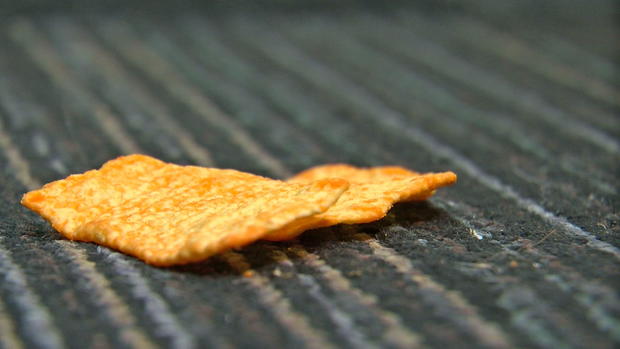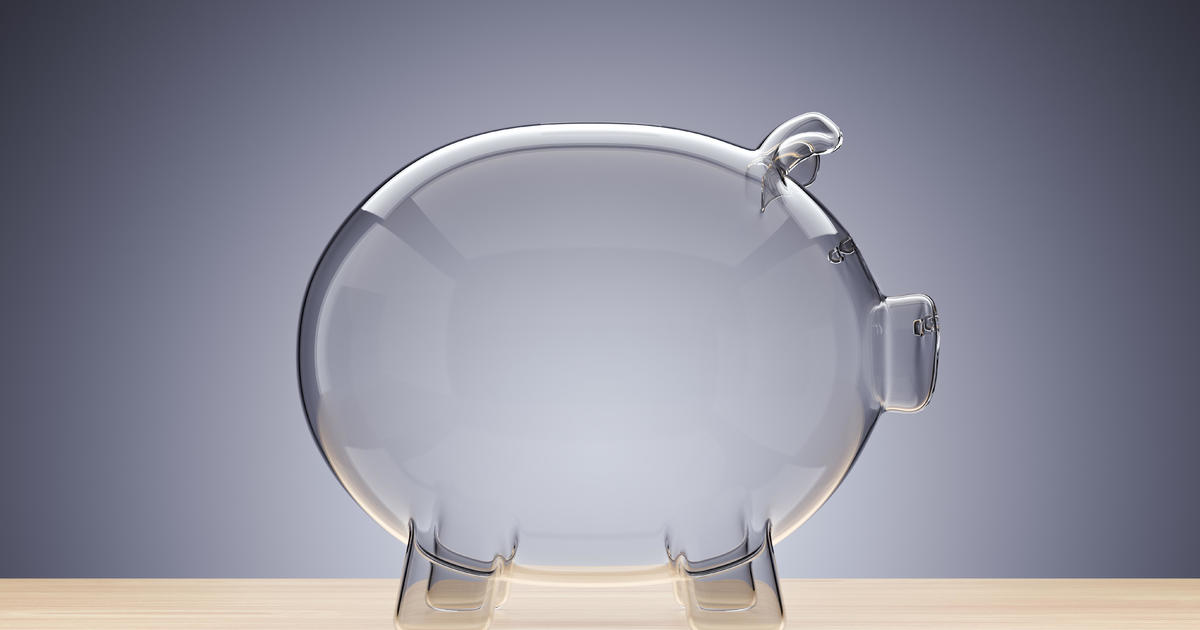Does the "five second rule" matter?
Originally published on July 26, 2022
MINNEAPOLIS – Apparently, five seconds is the dealbreaker for some people on whether to eat food that hits the ground.
A recent survey of 2,000 people found 44% follow the "five second rule." But there's many other factors experts say are more important than time.
Does the "five second rule" matter? Good Question. Our Jeff Wagner sinks his teeth into this theory.
We begin this story with a quick experiment with some help from WCCO reporter Jonah Kaplan, Chief Meteorologist Chris Shaffer, and anchor Amelia Santaniello. All of them were handed a piece of food, like chips, with the food hitting the ground before reaching their hand. Jonah and Chris didn't hesitate to pick it up and eat it. Amelia however politely declined.
"I know they're very clean here, but it's a public floor," she said.
Chris said with a smile, "That was about 3.7 seconds. Within five I'm good."
"In that amount of time, what is it just gonna scoop up bacteria?" Jonah said.
While Amelia didn't eat the food, she admitted there are times when she's quickly grabbed something she just dropped off the floor. It's a reality most of us admit to with a recent survey finding Americans admit to eating food off the ground four times per month.
Craig Hedberg is professor at the University of Minnesota School of Public Health who specializes in food borne illnesses.
"The idea that you can drop food and pick it up right away and it's safe to eat is a nice idea, but life is not that simple," Hedberg said.
Is time a factor in how germs attach to food?
"Time is definitely a factor," Hedberg said.
The longer food sits on the ground, the more time bacteria has to get attached.
Jonah said he was willing to eat the food we dropped on the floor because it occurred right in front of him.
"If I came here and it was just lying there, no, I'm not touching that," he said.
"I guess it depends on the food, too. Like if it's a meatball, I'm not gonna go for it," said Amelia.
Does the type of food matter that hits the floor?
"Absolutely," Hedberg said. "Food that is wet is going to have better ability to pick things up than dry food."
That means something like deli meat is more likely to have bacteria adhere to it, and faster, than something dry like a cookie or chip.
It's not just the food but the type of surface it hits that must be considered. Is it more of a concern when food lands on carpet or a flat surface like tile?
"Oddly I would trust the tile more because dogs aren't rolling around on it as much," Chris said.
"This gets cleaned every night and I know it gets swept," Jonah said while referencing that he feels tile floor is safer to eat food from than carpet.
Well guys, Hedberg said carpet might actually be better because the fibers create less surface area to touch food than tile.
"The idea of eating food off carpeting isn't one that's attractive to me," Hedberg said.
The shape of food is another factor to consider. That's because it can impact how much of the food's surface area touches the ground.
What about outside versus inside?
"You can hear birds out there. You know, birds and other wildlife are excreting bacteria all around us," Hedberg said.
"I would not eat it if it was off the pavement on a road, because oil spills, gas, rubber tires and like that stuff," Jonah said.
Amelia wouldn't eat food that hit the ground outside either.
"I don't know what's come across that grass," she said.
While there's more variables outside that could contaminate food, there's plenty of bacteria in homes as well, especially in areas where food preparation happens like cutting boards and counters.
Hedberg said salmonella and E. coli are the biggest concerns when it comes to eating foods that fell.
"I think as a rule of thumb, certainly if you're concerned about the possibility of getting sick, the easy thing is to throw it away," Hedberg said.
Beyond time, Hedberg said the type of food and the type of floor/ground it touches should be considered most. And if there's one thing we should be worried about that touches our food, it's our hands.
"We're constantly touching things and contaminating our hands, and then taking those hands to put food in our mouth. So washing hands is like one of the most important things we can be thinking about," Hedberg said.









